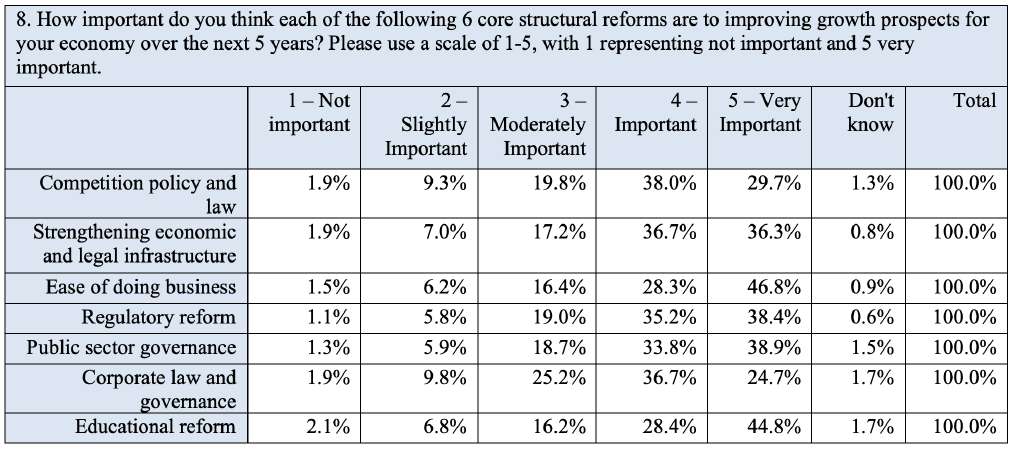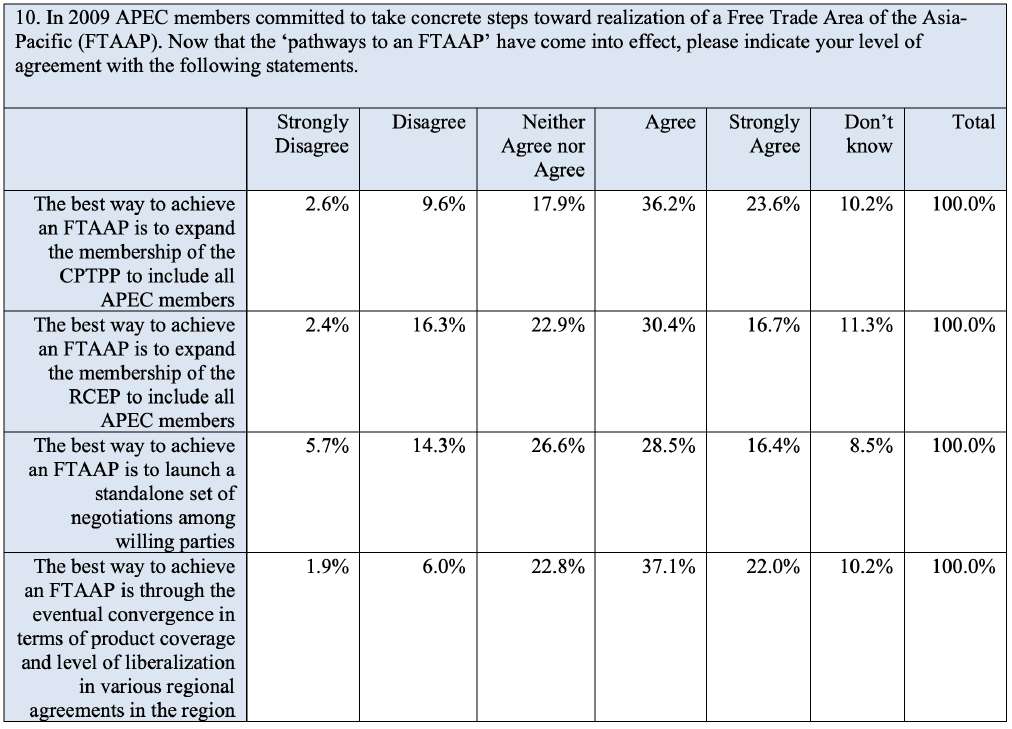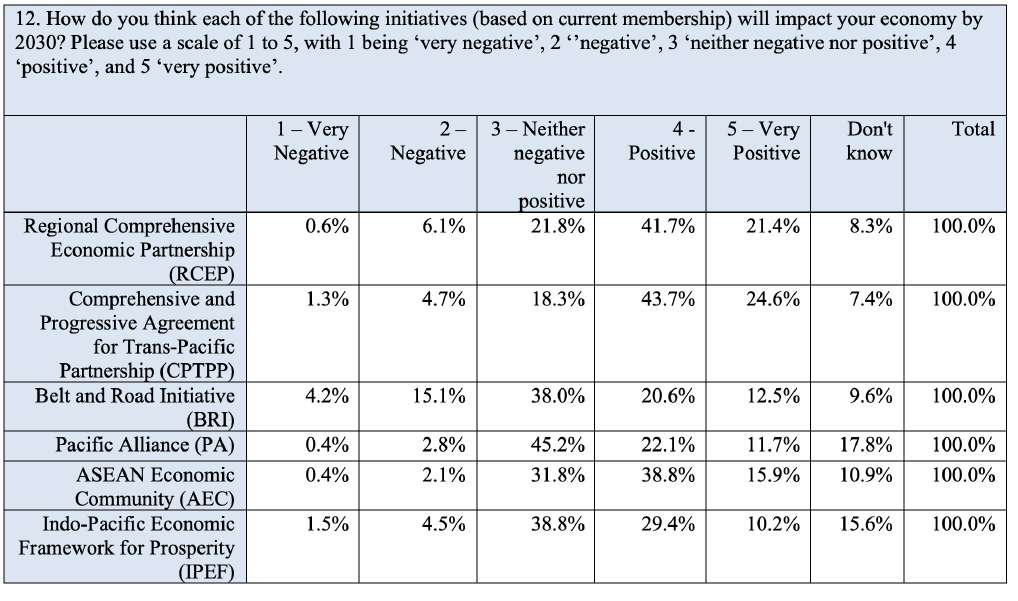This annex presents the findings of a survey of the Asia-Pacific policy community conducted by the Pacific Economic Cooperation Council from 11 August to 16 September 2022. The survey was disseminated through: PECC member committees; the APEC Policy Support Unit; the Asia-Pacific Research and Training Network on Trade (ARTNeT); and the AsiaPacific Finance Forum.
This is not a survey of public opinion but rather, a survey of those whose views influence policymaking, especially at the regional level. Some of the questions tend to be technical and/or require a knowledge of ongoing regional initiatives. However, we believe that those surveyed include those who are responsible for influencing and often making decisions on various aspects of their economy’s positions within different regional groups.
The guidance for identifying panelists is as follows:
Government
Panelists should be either decision-makers or senior advisors to decision-makers. As a guide, the government respondents in previous years included a number of former and current Ministers, Deputy and Vice-Ministers, Central Bank Governors and their advisors for Asia- Pacific issues, current APEC Senior Officials, and a number of former APEC Senior Officials.
Business
Panelists should be from companies who have operations in a number of Asia-Pacific economies or conduct business with a number of partners from the region. This might include each economy’s current ABAC members as well as past ABAC members. In last year’s survey, these included CEOs, vice presidents for Asia-Pacific operations, and directors of chambers of commerce.
Non-government: Research Community/Civil Society/Media
Panelists should be well-versed in Asia-Pacific affairs, being the type of people governments, businesses, and the media would tap into to provide input on issues related to Asia-Pacific cooperation. These included presidents of institutes concerned with Asia-Pacific issues, heads of departments, senior professors, and correspondents covering international affairs.
Respondent Breakdown We do not disaggregate results for each economy but rather by sub-regions – Northeast Asia, North America, Oceania, Pacific South America, and Southeast Asia.
• North America: Canada, Mexico, and the United States
• Northeast Asia: China, Hong Kong (China), Japan, Korea, Russia, and Chinese Taipei
• Oceania: Australia, New Zealand, Papua New Guinea, and French Pacific Territories
• Pacific South America: Chile, Colombia, Costa Rica, Ecuador, and Peru
• Southeast Asia: Brunei Darussalam, Cambodia India, Indonesia, Malaysia, Philippines, Singapore, Thailand, and Vietnam


















